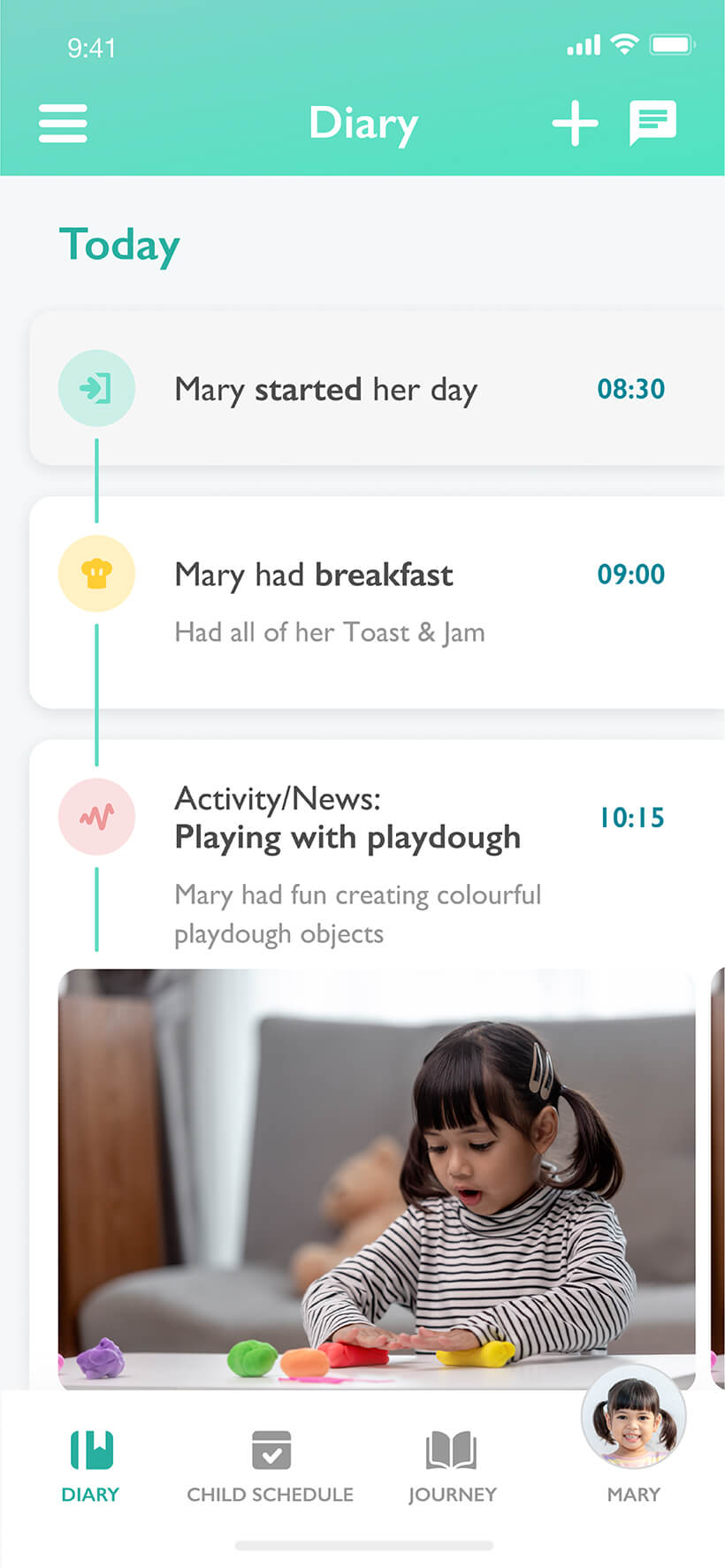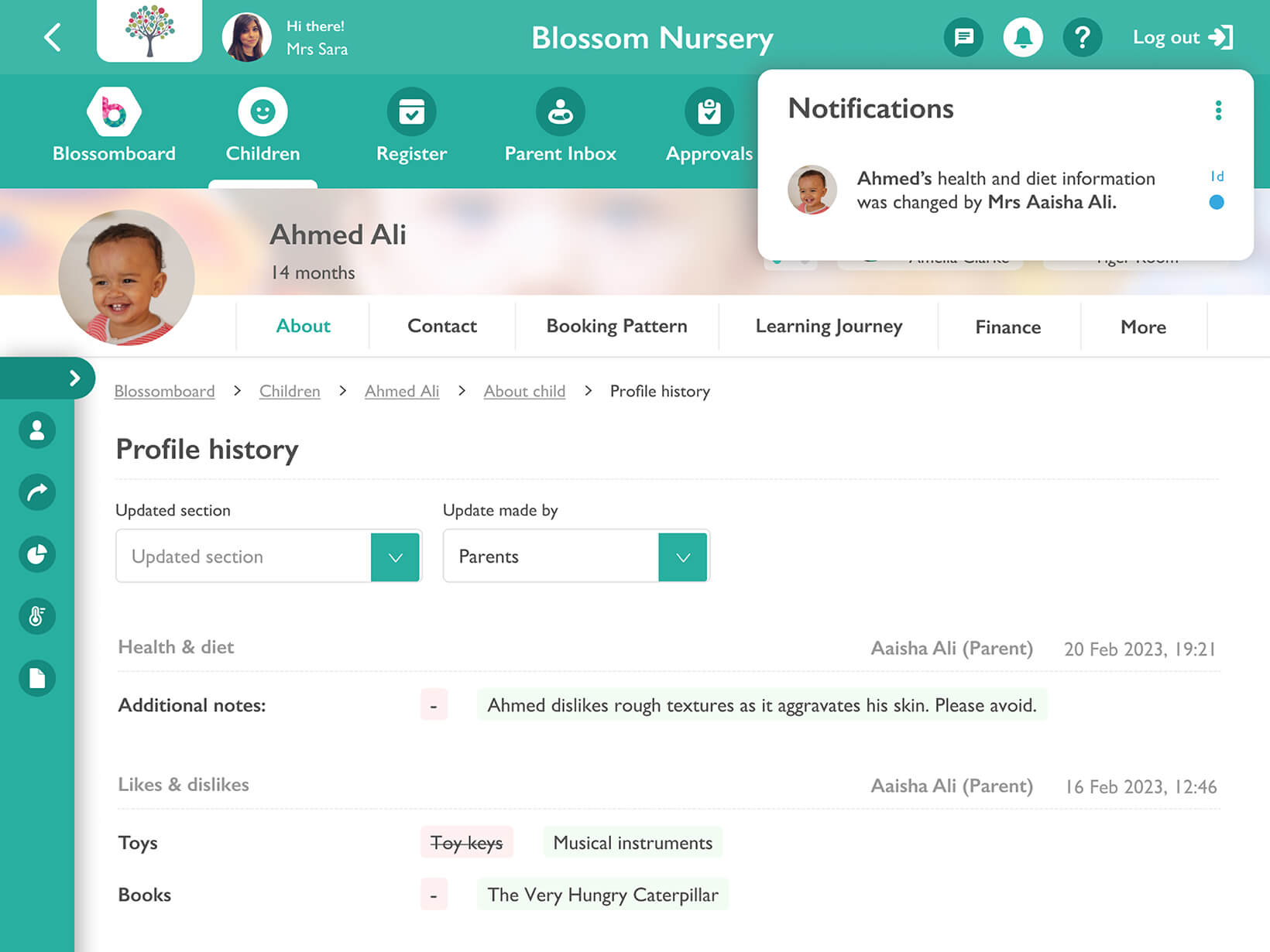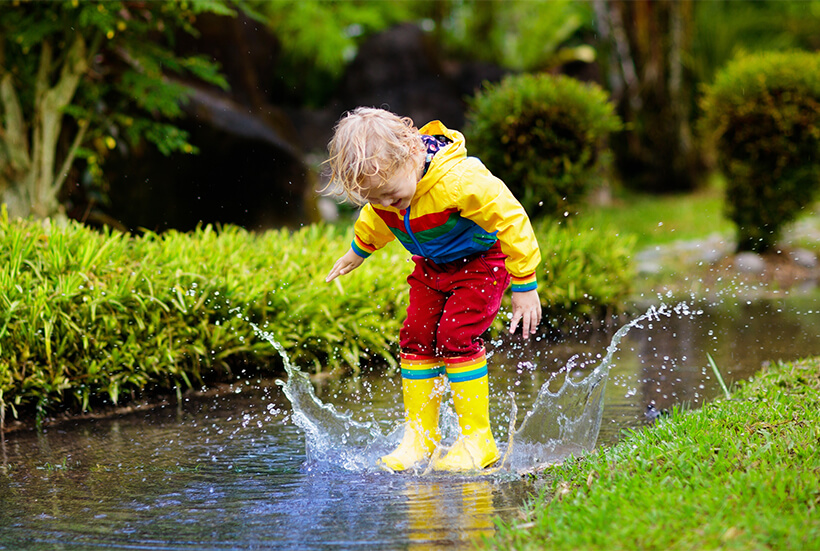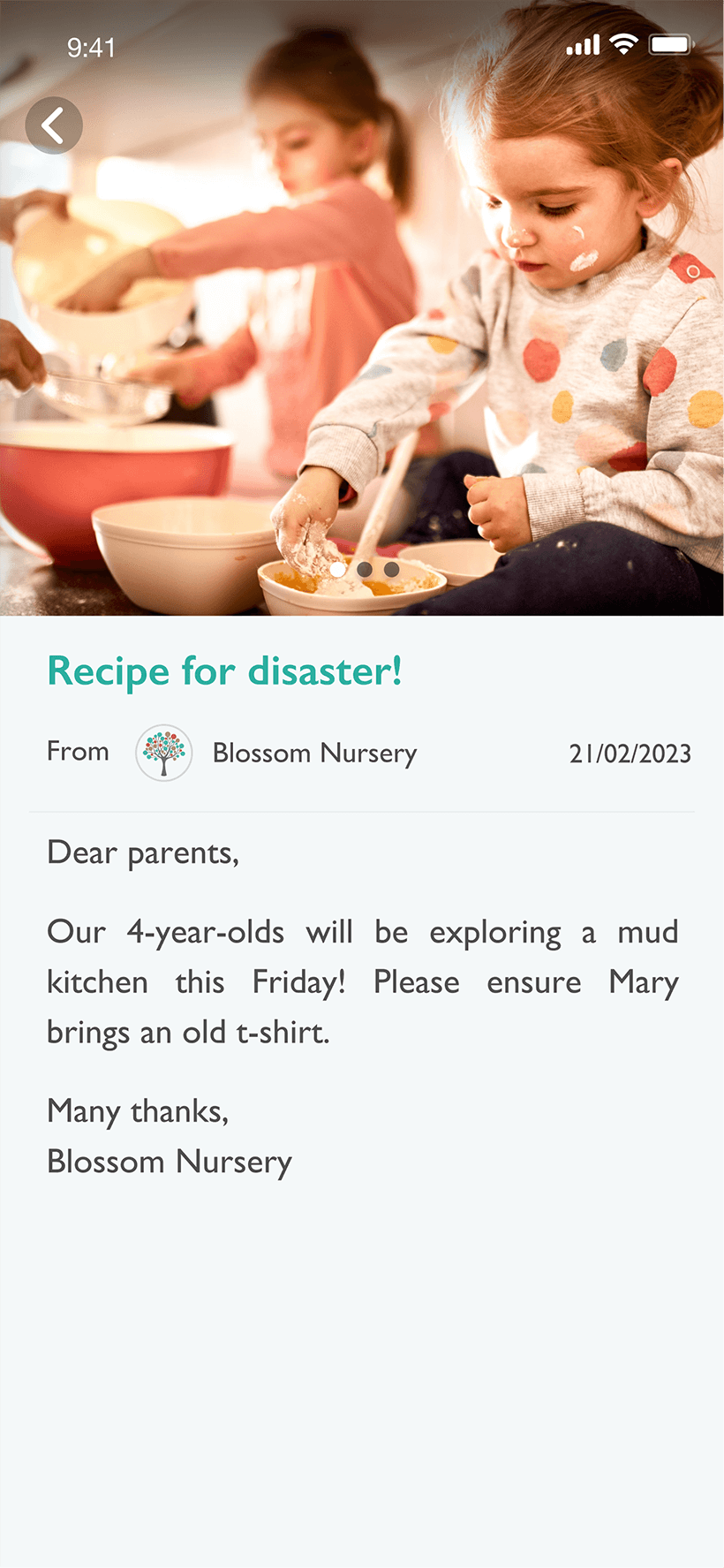Messy play includes hands-on activities that encourage exploratory play in the nursery. Anything can be used to facilitate messy play activities in EYFS: paint, water, sand, shaving cream, jelly, mud, soil and more.
Messy play offers many benefits for child development – it’s also really fun! Who doesn’t want to throw mud around or squish your fingers into baked beans? If you’re looking for slightly cleaner messy play ideas for your children, look no further.
In this article, we share 11 fabulously fun messy play ideas for EYFS including messy play activities for babies and toddlers.
What materials to use for messy play activities in EYFS?
Some nurseries may choose to buy messy play toys and planned tuff tray activities for their sensory provision, but this isn’t always necessary. There are lots of natural materials that can be used to develop children’s senses and creativity through messy play activities on a budget.
Sand activities for messy play
You may have a sand pit in your nursery already, which will be a firm favourite with the children. Sand can be used to dig, mould and build with and is soft on little hands that may be sensitive to specific textures. Try adding a splash of water to dry sand to change the consistency for messy play.
How to use playdough for sensory play
Playdough can be bought or made using a simple list of household ingredients and is a great addition to your list of messy play activities. Mouldable and malleable, playdough can be rolled into small shapes and help develop fine motor skills in children. Remember to share photos and videos of all the fun with your parents with Blossom’s digital diary.

Oobleck uses for messy play
Oobleck is a fascinating material that is both solid and liquid. Combining cornflour and water (with food colouring if you’d like to!) Oobleck runs like a liquid when held but transforms into a solid when pressure is applied through moulding the mixture.
Looking for messy play tuff tray ideas: EYFS edition? Oobleck is the perfect addition to your collection of EYFS tuff tray ideas. Encourage children to explore the changes to the Oobleck once they scoop the mixture up into their hands.
These moments of awe and wonder are perfect to share with your children’s parents. As Oobleck is so easy to make, why not suggest it as an activity for your parents to try at home? Encourage them to send a home observation via their Parent App so you can build on this when their child is at your nursery!
Paint and its uses in messy play
Non-toxic paint can be used for EYFS Easter activities, Christmas activities or other seasonal celebrations. Messy play with paint explores colour and colour mixing with toddlers. Try combining paint with small trucks and cars, wheeling vehicles through paint blobs in a tuff tray or on a piece of paper to create a masterpiece (and very messy cars!).
Kitchen cupboard items for messy play ideas
Messy play toys don’t have to be expensive. Cheap messy play ideas can be found inside your kitchen cupboards. Dried rice, lentils and pasta are perfect ingredients for child-led learning activities. Try mixing the cupboard ingredients with paint or Oobleck to get really creative!
Jelly and ice are tactile ingredients for messy play activities in the nursery, allowing the extra opportunity to hide small toys and objects in the mixture for an additional layer of fun.
It’s important to know your children’s likes and dislikes regarding new textures and sensory play. This will help you to build new sensory experiences without the child becoming overwhelmed (especially with children who may be on the Autism pathway).
Blossom’s Child Profile allows parents to add new likes and dislikes easily at any time, helping your nursery practitioners plan fun sensory activities.

Sensory bins and messy play toys
Sensory bins and tuff trays are an excellent addition to any activity that harnesses the curiosity approach. You can challenge the children to close their eyes and feel around the sensory bin, guessing what objects might be hidden in them. One of many sensory play ideas your practitioners can easily add to their daily activity plans.
With endless questioning, discussions and language development opportunities, sensory bins can introduce different textures whilst building vocabulary. Combining the flexible learning approach with sensory play allows children’s communication and language skills to develop in the nursery setting.
Why are messy play activities beneficial for toddler development?
Messy play has many benefits for babies and toddlers, including building important skills that will help them when they move on to their next education step to big school. When you plan sensory and messy play activities, the children gain far more than enjoying a fun activity with their friends. Reflect on how your setting can increase the sensory play activities you currently offer as part of your long- and short-term inclusive practice aims.
Let’s explore the benefits available from messy play.
Sensory development in toddlers
Sensory development for toddlers is important to help them to understand the world they live in. By building on touch, smell, sight, sound (and sometimes taste) when planning sensory play ideas in the nursery, children can stimulate their senses.
You may have children with additional needs in your setting, sensory play can be calming and relaxing for all children. As we all know, children explore new objects using their mouths, making it important to be aware of any allergies or intolerances children may have.
For example, you may make your own playdough or salt dough which commonly contains wheat, and having all medical information easily accessible online when planning activities improves nursery safety.
Does sensory play help to build social skills with toddlers?
Social skill growth is an important part of nursery-life, socialisation is one of the main reasons parents choose to send their child to an early years setting. Your practitioner team works hard to create opportunities to develop social skills through play. Messy play is the perfect chance to build on turn-taking, sharing tuff trays or objects, work in groups and also enhance confidence when working independently.
How to develop fine and gross motor skills in EYFS
Fine and gross motor skills are advanced through the use of activities that involve small and large objects. Incorporating messy play ideas into a child’s daily schedule can help engage children with the fiddly play they can often avoid.
Children use messy play as a way to use their fine motor skills. Each time they sieve through rice to find objects or make shapes from playdough they are building dexterity and muscle strength. Fine motor skill application can often be flagged as red and amber lights of EYFS physical development, messy play ideas help children to be motivated to get stuck in.
Physical development in the nursery through play
Physical development is one of the prime areas of learning in EYFS, and therefore it’s easy to link these activities to your nursery’s curriculum to communicate their benefit to parents even further. Messy play helps to build strength in hand, wrist and arm stability (which will be put to good use when they learn to tie their shoelaces, hold a writing instrument or paint). Messy play may also include jumping in puddles, mud or wading through water, all of these activities strengthen leg and core muscles.

11 Messy play ideas EYFS
Babies and toddlers explore their interests and curiosity levels in stages of play development. Messy play activities are important across all stages of play development. We share some easy messy play ideas to try in your nursery setting.
Messy play idea 1: Finger painting
Finger painting is a great way to make personalised keepsakes for your nursery parents. Use paper plates with blobs of different paint colours and encourage your toddlers to explore the different combinations of colours using their fingers, hands and feet.
Messy play idea 2: Sensory bins
Sensory bins can be made using any large or small container. It can be the perfect excuse to recycle some old storage boxes that are getting dusty. Fill using sand, rice or material (add in some small objects too). The children will have endless fun sieving through the sensory bin and finding hidden treasure.
Messy play idea 3: Playdough
Try this fun messy play activity with your 2-3 year olds in nursery to develop hand-eye coordination and develop their knowledge of colours. Have a selection of coloured playdough pieces on your tuff tray (you can encourage the children to roll them into small balls for an extra motor skill workout). Call out a colour and the children will splat the playdough ball with their hands.
Messy play idea 4: Water exploration
Fill a bucket or paddling pool with water and add toys like boats, plastic animals and measuring containers for the children to play with. Take care that your nursery team works to achieve the correct balance between child-led and adult-led play to encourage independence.
Messy play idea 5: Food colouring
Food colouring can be added to Oobleck, playdough and water to make messy play that little bit more exciting. You can add torches to shine through the coloured water to build their curiosity with different translucency at an early age.
Messy play idea 6: Cookie cutters
Cookie cutters can be bought inexpensively from any supermarket and are a versatile piece of equipment when it comes to playing in the early years. Encourage the children to make shapes in sand, mud, playdough and Oobleck, naming the shapes they make as a vocabulary booster.
Top tip:
You can share each child’s messy play creation through Blossom’s online diary, celebrating their hard work with all family members with approved access.
Messy play idea 7: Mystery rice bowls
Similar to sensory bins, place dried rice into a bowl and hide some small objects in the bowl. The children will love the sensory feel of the rice whilst uncovering the hidden objects. You can increase the sensory experience by adding a blindfold option for those willing to try.
Messy play idea 8: Slime
Slime can be made with simple kitchen ingredients, ranging in texture and colour. It can be an interesting way to follow instructions to make the slime and then develop fine motor skills to play and mould the slime.
Messy play idea 9: Mud kitchen
Best to do this one outside! A mud kitchen doesn’t have to be fancy; the children simply need some soil, some kitchen utensils and their hands to make a selection of mud pies.
Top tip:
Share your messy play plans in advance via Blossom’s digital newsletter, helping parents to choose suitable clothing choices and provide spare clothing when needed for these messy activities.

Messy play idea 10: Shaving foam
Shaving foam is one of those versatile resources that can be used to help with writing dexterity, build phonics knowledge and even help with early mathematics. Use shaving foam as part of a structured learning activity or just for unstructured play in your nursery.
Messy play idea 11: Sandcastles
Give the children some sand and tools such as shovels, buckets and moulds to create sandcastles and pack the sand in tightly to make shapes that stay. If you live near the beach, you may want to explore your local surroundings and expand this messy play idea from the confines of a sand pit.
Subscribe to receive expert advice and tips from seasoned professionals in the early years sector.